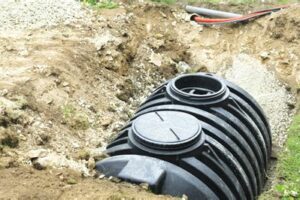Table of Contents
Learn the basics of starting a farm in Washington state with our guide. Discover the necessary permits, regulations, and resources to get started.
Starting a farm in Washington State can be both exciting and challenging. With its diverse climate, rich soil, and abundant water resources, the state offers a fertile ground for agricultural production. However, before you dive into this venture, there are several key factors that you need to consider. First and foremost, you need to have a clear vision of what type of farming you want to pursue. Whether it’s organic vegetable farming, dairy farming, or livestock production, each type of farming has its own unique set of challenges and requirements.
Additionally, you need to research the local market demand for your chosen product. Is there a need for your produce or livestock in the area? What is the competition like? Can you offer something unique and valuable to the market? These are all important questions to answer before you invest your time and money into a farm.
Furthermore, you need to understand the legal and regulatory requirements for starting a farm in Washington State. This includes obtaining necessary permits, licenses, and certifications. You also need to comply with state and federal laws regarding farm safety, environmental protection, and labor standards.
Finally, you need to have a solid business plan that outlines your goals, strategies, and financial projections. Starting a farm requires a significant investment of time, money, and effort. Therefore, it’s important to have a realistic plan that takes into account all the costs and risks involved.
In conclusion, starting a farm in Washington State is a rewarding but challenging endeavor. By carefully considering these key factors and developing a solid plan, you can increase your chances of success and make a positive impact on your local community.
Starting a farm in Washington State can be an exciting and rewarding adventure. With diverse landscapes and a favorable climate, it’s no wonder that Washington is one of the top agricultural states in the country. However, starting a farm can be a daunting task, especially if you’re new to the industry. In this article, we’ll provide you with some tips on how to start a farm in Washington State.Finding the Right LocationWhen starting a farm, location is everything. You’ll want to find a place that has good soil, access to water, and plenty of sunshine. Some areas of Washington are better suited for certain crops than others. For example, Eastern Washington is known for its dry climate and is ideal for growing wheat, while Western Washington is better suited for dairy farming.
Are you eager to start your own farm in Washington State? If your passion lies in agriculture and you’re seeking an opportunity to work with nature, then starting a farm might just be the ideal choice for you. However, before embarking on this journey, there are several crucial steps to follow.
Firstly, it’s important to choose the right location for your farm. Opt for a site that has fertile soil and easy access to a water supply. Equally important is selecting a location that is convenient for selling your produce in the market.
Next, plan your finances. Starting a farm can require significant investment, so it’s essential to calculate all expenses related to setting up infrastructure and daily farming operations.
Additionally, registering your farm with the necessary government agencies is vital. Obtaining necessary permits, licenses, and insurance should also be on your list of priorities.
Another important consideration is choosing your farming method. You can opt for sustainable or conventional farming methods, depending on what best suits your needs and budget.
Choosing the crops to grow is a crucial part of planning. Consider the demand for different crops in the current market and select those that will fetch higher prices.
Setting up infrastructure is a significant task when starting a farm. This includes constructing or repairing barns, fencing fields, setting up irrigation systems, and installing machinery. Make a detailed list of the necessary infrastructure before starting.
If you want to add dairy or meat products to your line, consider livestock farming as an option to generate more revenue for your farm.
Hiring skilled staff can help your farm thrive. Look for experienced farm managers and laborers to ensure the success of your farm.
Finally, creating a marketing and sales strategy is crucial. Consider selling your products at local farmers’ markets, online platforms, or by joining or creating a food co-op.
Overall, starting a farm in Washington State requires proper planning, hard work, and dedication. With these steps in mind, you can create a successful farm that provides fresh, healthy produce to the community.
Starting a farm in Washington State can be a challenging yet rewarding experience. With its diverse climate and fertile land, it offers numerous opportunities for those who want to pursue farming as a career or a lifestyle. Here’s a guide on how to start a farm in Washington State:
1. Research
The first step to starting a farm is to do thorough research. This includes studying the local market, identifying potential customers, and learning about the state’s agricultural regulations. You can also attend farming conferences, workshops, and seminars to gain more knowledge.
2. Develop a Business Plan
A business plan will help you outline your goals, objectives, and strategies for your farm. It will also help you secure funding from investors or lenders. Your business plan should include information about your farm’s products, target market, marketing strategies, and financial projections.
3. Choose a Location
Washington State has a diverse landscape, from its coastal regions to its mountain ranges. When choosing a location for your farm, consider factors such as soil quality, water availability, and climate conditions. You may also want to look for a location that is close to your target market or transportation networks.
4. Obtain Permits and Licenses
Before starting your farm, you will need to obtain permits and licenses from the state and local government. These may include zoning permits, building permits, and agricultural permits. You may also need to register your farm with the state and obtain a tax ID number.
5. Secure Funding
Starting a farm can require significant upfront costs, including land, equipment, and supplies. You may need to secure funding from investors, lenders, or grants. You can also consider crowdfunding or partnering with other farmers to reduce costs.
6. Start Farming
Once you have completed the previous steps, it’s time to start farming. You can start by planting crops or raising livestock depending on your farm’s focus. Be prepared for long hours and hard work, but also enjoy the rewards of producing healthy food for your community.
Starting a farm in Washington State requires dedication and hard work, but it can also be a fulfilling and satisfying experience. By following these steps and being creative, you can turn your dream of owning a farm into a reality.
Thank you for taking the time to read about starting a farm in Washington State. It is an exciting and challenging endeavor that requires dedication, hard work, and a passion for agriculture. Whether you are a seasoned farmer or just starting your journey, there are many resources available to help you succeed.
The first step in starting your farm is to develop a solid business plan. This will help you identify your goals, assess your financial needs, and determine the best course of action for your farm. There are many resources available to help you create a business plan, including the Small Business Administration and the Washington State Department of Agriculture.
Once you have a business plan in place, it is important to choose the right location for your farm. Washington State offers a variety of climates and soil types, so it is important to research the area where you plan to farm. You should also consider the availability of water, access to markets, and the local zoning and land-use regulations.
Finally, it is essential to build a strong network of support. This includes other farmers in the area, agricultural organizations, and government agencies. Washington State has a thriving agricultural community, and there are many resources available to help new farmers succeed. By working together and sharing knowledge, we can create a sustainable and profitable future for agriculture in our state.
Starting a farm in Washington State is an exciting and rewarding experience. It requires hard work and dedication, but with the right resources and support, it can be a successful venture. Thank you for considering agriculture as a career, and we wish you all the best in your farming journey.
Video How To Start A Farm In Washington State
People Also Ask About How To Start A Farm In Washington State
Starting a farm in Washington state can be an exciting and rewarding experience. However, it can also be challenging and overwhelming if you don’t know where to begin. Here are some of the most commonly asked questions about how to start a farm in Washington state:
1. What are the legal requirements for starting a farm in Washington state?
- You will need to register your farm with the Washington State Department of Agriculture.
- You may need to obtain permits or licenses depending on the type of farming you plan to do.
- You will need to comply with state and federal regulations regarding food safety, labor laws, and environmental protection.
2. What kind of land do I need to start a farm in Washington state?
- You will need land that is suitable for the type of farming you want to do.
- The soil should be fertile and well-drained.
- You may need access to water for irrigation.
3. How do I finance my farm?
- You may be able to obtain loans or grants from the USDA or other agricultural organizations.
- You could also consider crowdfunding or finding investors who believe in your vision.
- You may be eligible for tax breaks or other incentives for starting a farm in a rural area.
4. What kind of crops or livestock should I raise?
- You should choose crops or livestock that are well-suited to your land and climate.
- You may want to consider the demand for certain products in your area.
- You should also think about your own interests and skills, as well as the resources available to you.
5. How do I market and sell my products?
- You could sell your products at farmers markets, to local restaurants or grocery stores, or directly to consumers through a CSA program.
- You should have a strong online presence, including a website and social media accounts, to attract customers and promote your brand.
- You may want to consider partnering with other farmers or businesses to expand your reach.
Starting a farm in Washington state can be a challenging but rewarding experience. By following these tips and doing your research, you can lay a strong foundation for a successful and sustainable farming business.






